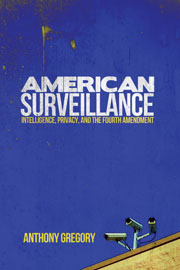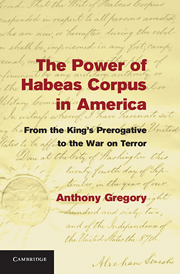Upon the recent discovery of an alleged plot to terrorize airplanes flying from Britain to the United States, the Transportation Security Administration (TSA) rapidly prohibited commercial airline passengers from bringing fluids—bottled water, soft drinks, shampoo, and other liquid toiletries—onto planes.
Some critics of the new TSA policy have questioned the immediacy with which the new, sweeping restrictions were issued. The suspects who were supposedly going to sneak liquid explosives onto a plane did not have tickets yet, and some did not even have passports, which in Britain require months of waiting. According to NBC News, “one senior British official suggested an attack was not imminent.”
President Bush’s critics complain that the new TSA restrictions were based more on politics than real security concerns, but they should not be surprised. The only endeavors unencumbered by politicization are those that are free from political decision-making—those separated from the state. After 9/11, airline security was nationalized. Democrats were the first to insist on the change; Republicans initially resisted, but ultimately backed it.
Government airline security has been burdensome, bizarre and ineffective. In 2003, college student Nathaniel Heatwole smuggled box cutters onto two airplanes. Several media exposes have demonstrated the inconsistency of security at checkpoints, through which thousands of people sneak prohibited items every year. Countless flights have been delayed and passengers dramatically inconvenienced by ridiculous shutdowns of airport gates, all because some agent found a pair of scissors in a trashcan or thought someone looked suspicious.
Rarely does anyone ask what makes airplanes so much more vulnerable to bombings than office buildings, restaurants, theaters, and other crowded places. Why all the focus on airport security lines, rather than the many other sectors of the busy society? If the unique danger is supposedly that planes can be hijacked and used as missiles as they were on 9/11, why not allow airlines to protect themselves by arming their pilots or even allowing armed passengers? The airlines have every incentive to protect their customers, employees and investments, and can determine the best way to do so.
Airlines could have different standards, and customers could choose which ones to patronize—those that allow firearms or those that disarm their passengers and crew; those that scrutinize all patrons equally or those that are more cautious with passengers of a statistically riskier demographic. Car insurance companies make distinctions on the basis of demographics. Why can’t airlines?
We could expect some differences in the way the private and public sectors would handle a possible threat. People in the private sector, whether individual passengers or airline companies, are held liable for their actions. Businesses lose money when they don’t protect their assets, and they go under if they abuse their customers the way TSA frequently mistreats travelers. Private individuals tend to be measured and effective even in responding to such serious threats as Richard Reid, the shoe-bomber, who in December 2001 got past government security only to be neutralized by flight attendants and passengers aboard the plane.
The government, in contrast, has no liability when something goes wrong. And so after two U.S. Air Marshals gunned down Rigoberto Alpizar as he ran off his scheduled flight at Miami International Airport on December 7, 2005, there was no effort to change security policy—only an attempt by officials all the way up to President Bush to whitewash what had happened. After government claims that Alpizar had shouted out he had a bomb were contradicted by every single passenger on board and after it was shown the unarmed man had no terrorist connections whatsoever, government officials faced no consequences for the deadly overreaction and cover-up that followed.
Indeed, the government, unlike private enterprise, has no institutional incentive to protect passengers. It does not fear bankruptcy, lawsuits, prosecution or even competition. Rather, the government uses airline security as just another way to expand its size and power. Every terrorist attack, potential or successful, translates into bigger bureaucratic budgets. Failure is rewarded with more money. The occasional atrocity, such as the killing of Alpizar, is seen as the price we pay to be safe.
It should be no wonder, then, that the norm at the airports is intimidation, onerous hassle, fear of officials, as though one were in a police state, and, at best, a false sense of security against terrorists. Only by privatizing and deregulating security can we depoliticize it and let those who have an actual stake in safety be charged with protecting passengers.








